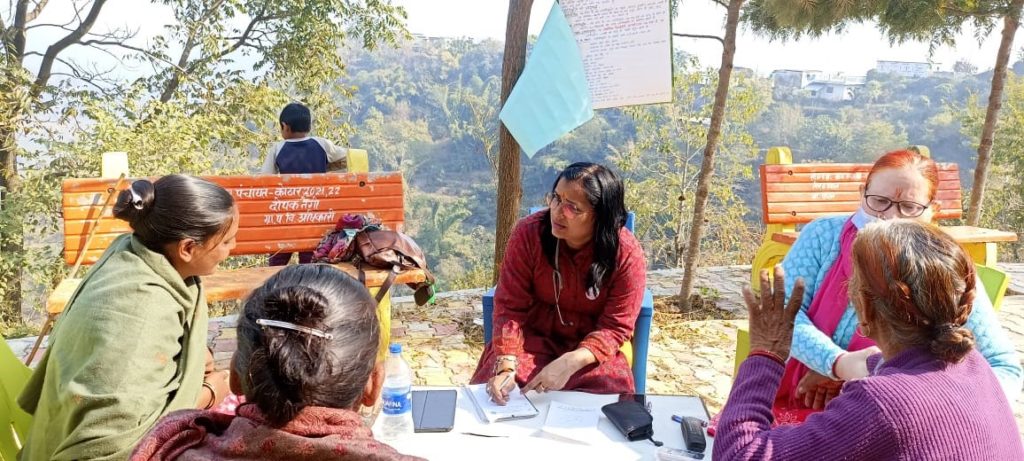At the heart of women’s health initiatives lies a critical yet often overlooked phase: menopause. While various programs are implemented on women’s health, the significance of menopause in women’s lives often remains sidelined. Menopause, a natural biological process marking the end of reproductive years, deserves attention and dedicated care. Menopause typically occurs in the late 40s to early 50s, diagnosed when menstruation ceases for 12 consecutive months. However, the transition, known as perimenopause, can start years earlier, characterized by irregular periods and various symptoms. These symptoms, ranging from hot flashes to mood swings, vary in intensity from woman to woman, necessitating specialized care and support. Recognizing the significance of this life stage, RDI has taken proactive steps and started a piolet study in underserved areas of Yamkeshwar block of Pauri Garhwal district. The team of outreach menopause clinic included medical doctors, yoga professionals and nurses who have better skills in communication and counseling. Total 193 women were screened in 11 camps and of these, 126 women were diagnosed with post-menopausal syndrome and received personalized care.
Menopause outreach clinics have been designed to offer women gynecological services, health check-ups, and community-based mental health support. These clinics also focus on educating women about the physical and mental changes that occur during menopause. Women can manage their symptoms through lifestyle changes, dietary counseling, yoga, pharmacological interventions, and local herbs and spices (natural medications). The psychological support services offered by these clinics include counseling and therapy to help women cope with emotional difficulties and maintain good overall mental health. Yoga is a powerful tool in managing menopausal complications as it improves physical fitness and reduces stress. Outreach Clinics raise awareness, provide access to health care, and help to normalize menopausal conversations. The Menopause Clinic recognizes that every woman’s experience with menopause is unique, and that there is no “one size fits all” approach to treatment. Treatment plans must be tailored to a woman’s unique symptoms and medical history, as well as her personal preferences.
By addressing the sociological and psychological dimensions of menopausal health, healthcare providers can offer holistic care that acknowledges the complex interplay between biological, social, and psychological factors. Initiatives such as community-based support groups, culturally sensitive healthcare services, and education campaigns can promote positive attitudes towards menopause and empower women to embrace this transformative phase of life with resilience and dignity.

